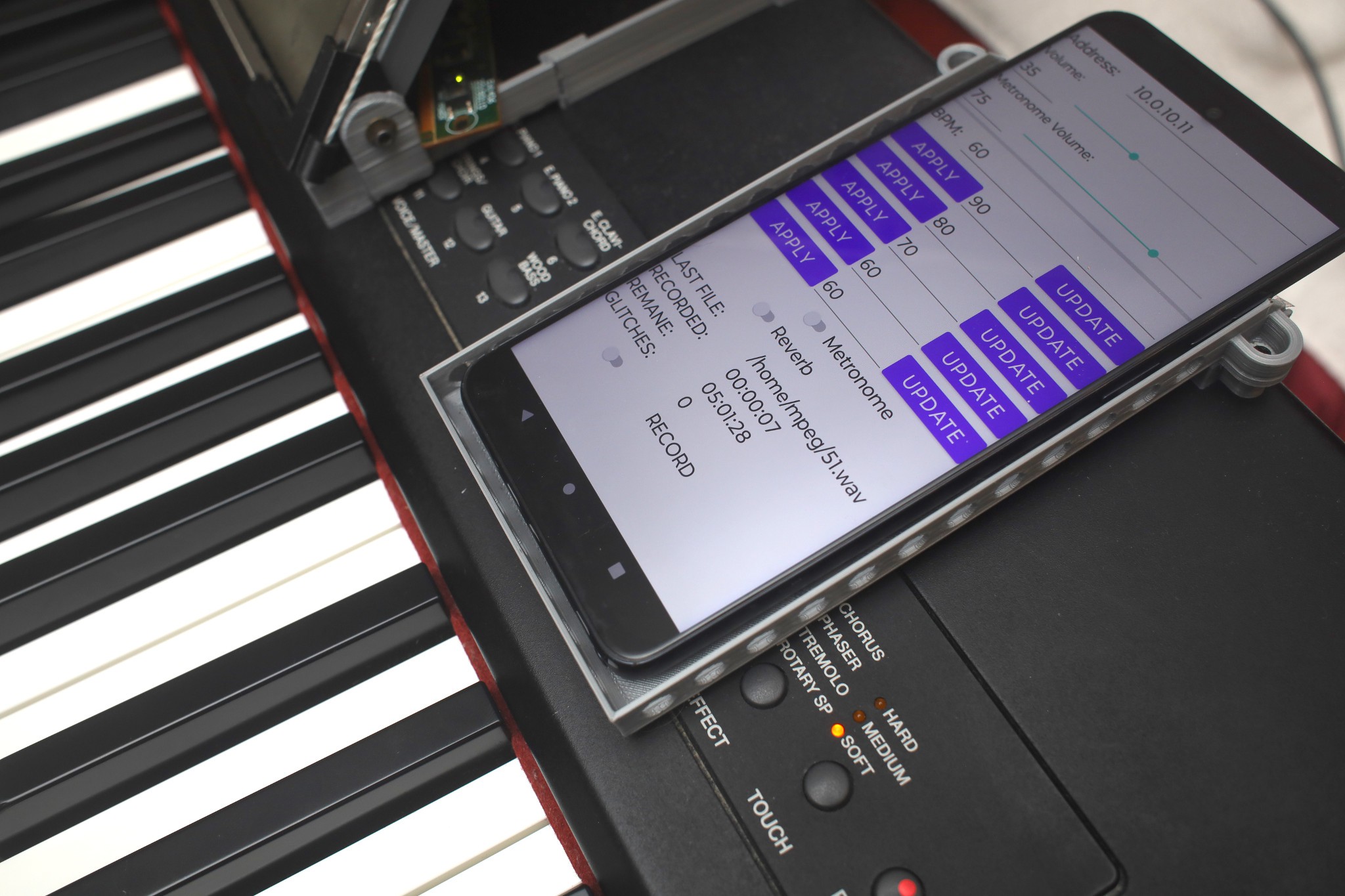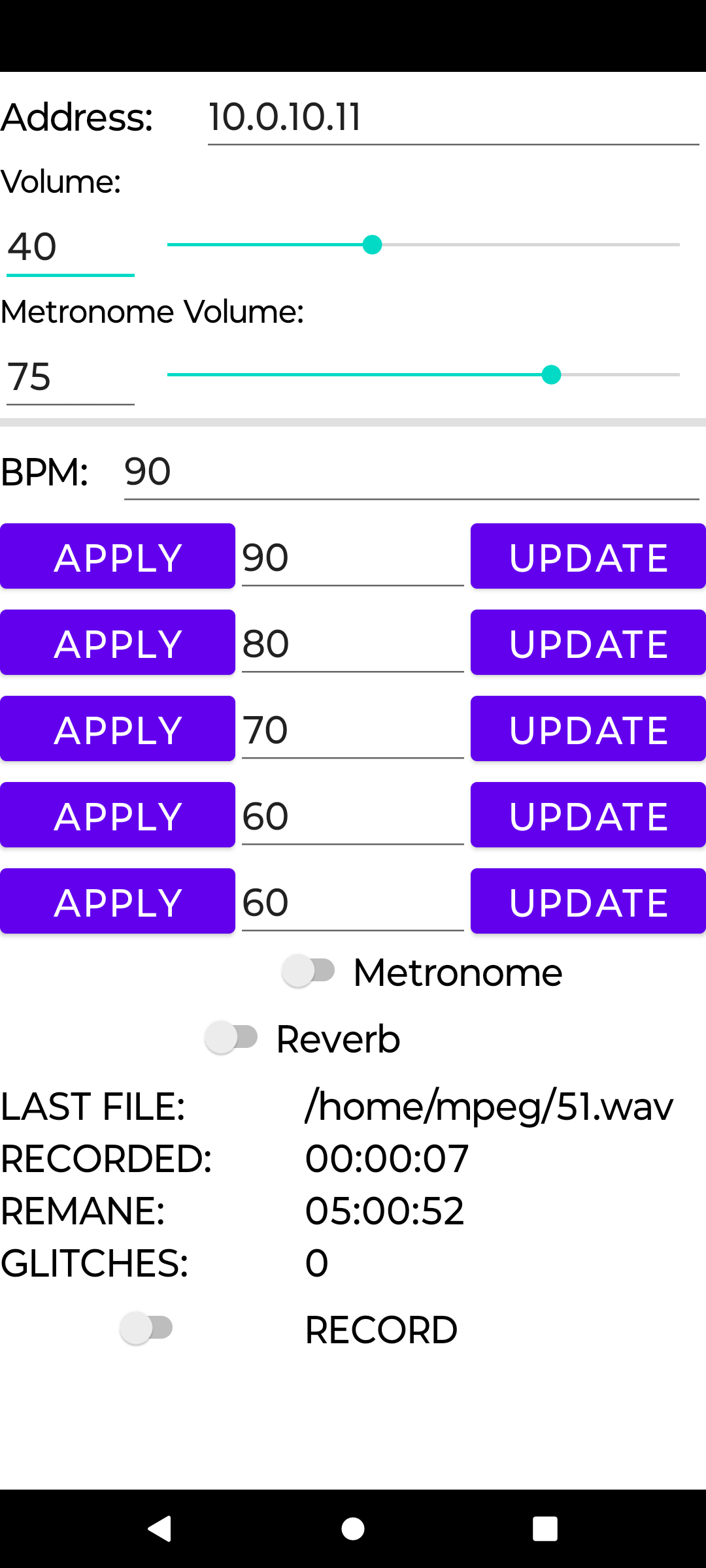The browser app has been just good enough, but it's awful. Phone browsers just can't do polling in javascript nearly as fast as commodore 64 basic. The effort to convert it to an app was stalled by the prospects of having to commute again & the longevity estimates of this project. There's no way to practice when commuting & that could happen in less than a year.
With retirement rapidly approaching, lions have pondered the future of the CP33. It's most likely going to stay the mane instrument as before & lions will never own an accoustic piano, but there's a nonzero chance it'll get replaced by an acoustic piano in less future time than it's past lifetime. It would be a waste to rewrite the signal processor if it only has 5 years to go.

Another full day rewriting most of the raspberry pi code finally pushed it to the finish line.

It's still very minimal, but it's super fast. It turned out libusb_init leaks memory if it's repeatedly called. The app more proactively disables user input until it gets a packet from the instrument containing the instrument's state. If the instrument is rebooted after the app detects it, it'll overwrite the instrument's initial state. This shouldn't be a problem, since rebooting the instrument shouldn't undo anything the app previously set.
The lion kingdom never used the reverb again, after the early days discovering it made it impossible to hear nuances.
There were ideas to require a confirm checkbox to make the update buttons do anything. There's also room for + - buttons for the metronome.
The address text is arguably useless. It could be hard coded.
Noted the app isn't showing the phone's time bar. They all seem to require a title bar before before they show the time bar, otherwise they just have a black bar on top. The truckcam app managed to show the time bar without a title bar.
 lion mclionhead
lion mclionhead
Discussions
Become a Hackaday.io Member
Create an account to leave a comment. Already have an account? Log In.